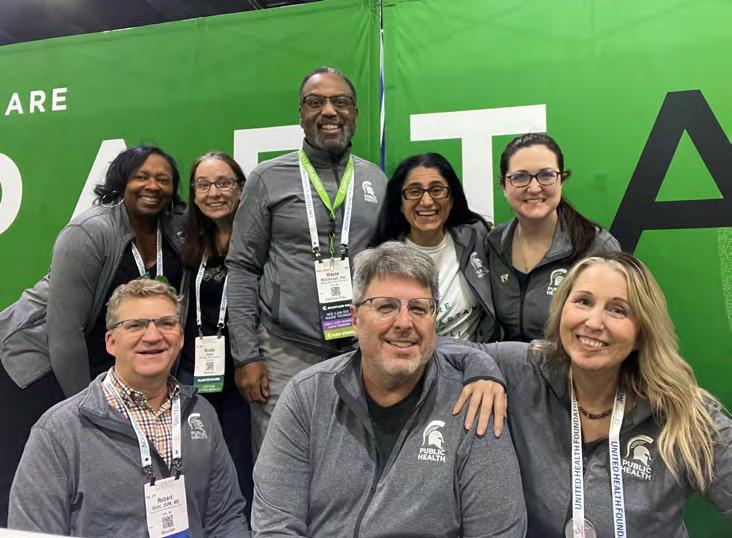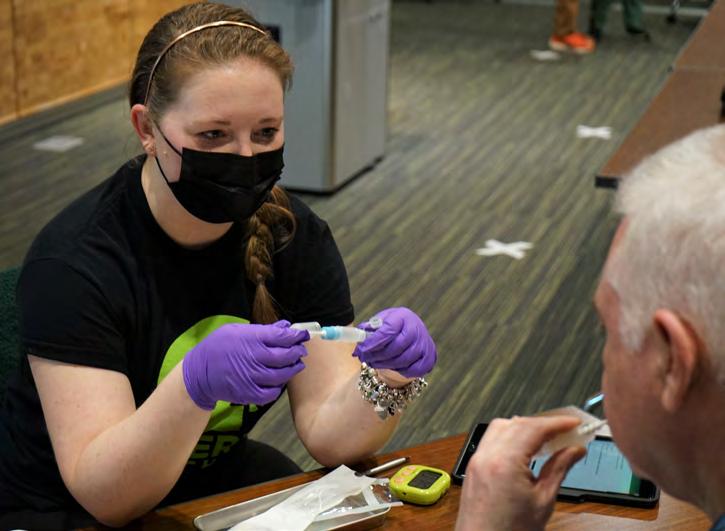




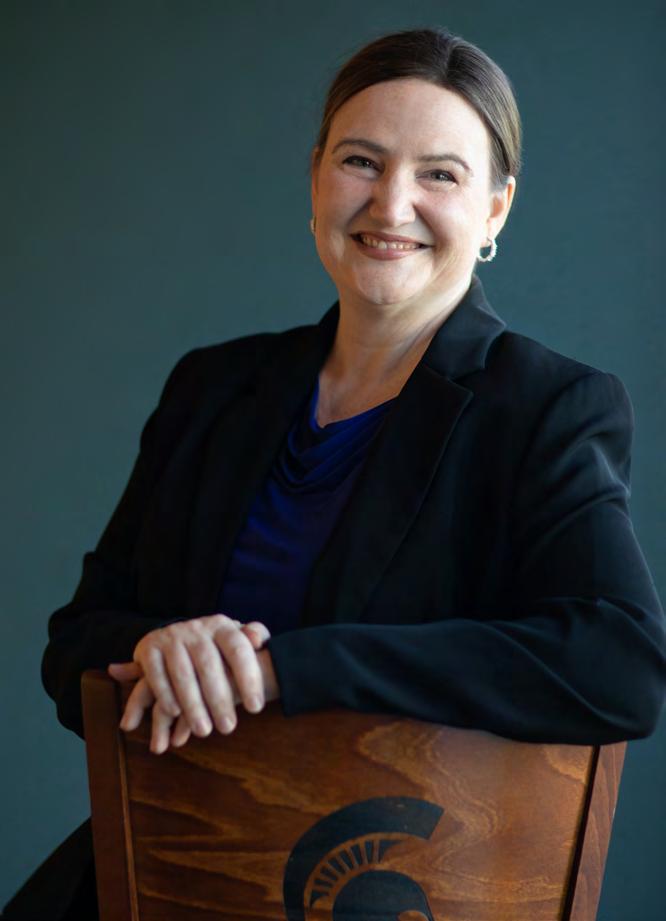
“The partnership between Flint and MSU is what makes the department’s work so effective — by giving the community a voice in what happens both in research and clinical care.”
The Charles Stewart Mott Department Health is the first academic department developed and co-governed in partnership the communities it serves. This collaborative approach enhances both our academic and real-world impact, with more than million in external funding to date. This approach, which is making a profound on the health of Flintstones, Michiganders, Americans across the nation, is a testament our commitment to community partnership real-world changes prioritized by our patriarchs, and youth. Based at the College Human Medicine’s Flint location, we address urgent public health issues that are priorities Flint and are nationally applicable.
The prolific and rapidly growing department expanding, with a new building and 18 track, full-time medical school research positions available. These generous positions offer a unique opportunity for established researchers who seek to continue impactful programs of implementation, intervention, and policy research.
Blue Ridge Institute for Medical Research Rankings ‘23: MSU Public Health ranks #12 in the nation for NIH grants for academic departments of public health.
Department of Public department copartnership with collaborative academic success than $186 This novel profound impact Michiganders, and testament to partnership and matriarchs, College of address priorities for department is 18 tenureresearch faculty positions established impactful intervention,
A $25 million gift from the Flint-based Charles Stewart Mott Foundation allows us to largely or fully guarantee salary coverage. Because the department is young, many things are possible.
As one of the first online MPH programs, we have been training public health professionals for the past 16 years. Our CEPH-accredited online Master of Public Health (MPH) and Graduate Certificate program has educated more than 800 Spartan alums working in meaningful careers. After conversations with public health departments, alums, and community leaders throughout the State of Michigan, we are proud to have added two new concentrations. We now offer three MPH concentrations: generalist, rural public health, and data management and analytics.
From community scientists to faculty researchers to public health education, we are preparing the next generation of public health leaders.
Warm Regards,
Jennifer E. Johnson, PhD Chair,
Charles Stewart Mott Department of Public Health Michigan State University College of Human Medicine

The Charles Stewart Mott Department of Public Health is unique as the first academic department to be co-developed and co-governed in partnership with the communities it serves. This collaborative approach aims to enhance academic success and real-world impact. Based at the College of Human Medicine’s Flint campus, the department focuses on population health. Its close ties to the Flint community enable faculty and researchers to gain insights into the community’s strengths and needs while addressing its most urgent public health issues.
Spartans work side-by-side with community partners and health care providers in a communityidentified and community-participatory public health focus model. Research efforts focus on improving health in the areas of health disparities, chronic disease, and behavioral health.
From 2014 – 2024, public health researchers have been awarded over $186 million in externally sponsored grants for community research.
Funding success is the result of a strong relationship among community advocates. Partners in the community help fuel the efforts with resources and a shared commitment to improving lives.

The Charles Stewart Mott Department of Public Health was established in March 2015 with the support of the Flint community, Hurley Medical Center, McLaren Flint, Ascension Genesys Hospital, and the Charles Stewart Mott Foundation.

Flint community recieves funding to develop the field of community-based participatory research
Flint community-based organizations form a formal coalition to advocate for public health and establish a national network of coalitions to advise the CDC
Flint forms one of the first grassroots community public health groups in the U.S.
Flint community members found the National Community Based Organization Network to advance community-based participatory research
Flint community members recieve CDC funding to end racial infant mortality disparities and organize the Community-Based Public Health Caucus of the American Public Health Association
Flint community members found a national center on the community ethics of genomics, recognized by the CDC
Flint community members partner to win Michigan’s first Clinical and Translational Sciences Award (CTSA)
Flint community members create the Community Ethics Review Board for research
Flint community members convince first Flint researcher to come to Flint
2014-Present: Community members recruit researchers and serve on departmental search committees
Charles Stewart Mott Foundation endows $25M
Ella Greene-Moton from Flint becomes first grassroots community member elected president of the American Public Health Association
Flint hospitals approach MSU to discuss a medical school in Flint, with Flint-based funding (Mott Foundation)
2012
Flint community partners with MSU to build department and survey residents about Flint’s public health needs
2012-2014: Mott Foundation and Uptown Redevelopment renovate Flint Journal Building for MSU
Faculty members arrive and the Division of Public Health is formed
2015-Present: Community members serve as named investigators on funded projects with MSU faculty
2023
Charles Stewart Mott Foundation and others provide $23.8M to build and furnish the department’s additional building next door
The Charles Stewart Mott Foundation has granted $25 million to expand the Michigan State University College of Human Medicine’s public health presence in Flint. The grant will create an endowed fund to increase public health faculty, academic research and community health collaborations.
“Expanding MSU’s public health program in Flint is a great thing for the community, and it also will yield important lessons for our state and nation as we struggle with both emergent and chronic health challenges,” said Ridgway White, president and CEO of the Mott Foundation. “MSU’s work in Flint is a wonderful example of what can happen when scientists, residents and community advocates work together to improve health.”
The new grant to MSU will build upon Mott’s initial support for the college’s presence in Flint. Between 2011 and 2013, Mott granted $12 million to MSU for the college’s expansion and relocation of its public health program from East Lansing to Flint, as well as $7.7 million to the Foundation for the Uptown Reinvestment Corporation to support renovation of the former Flint Journal building to house the program.
READ MORE




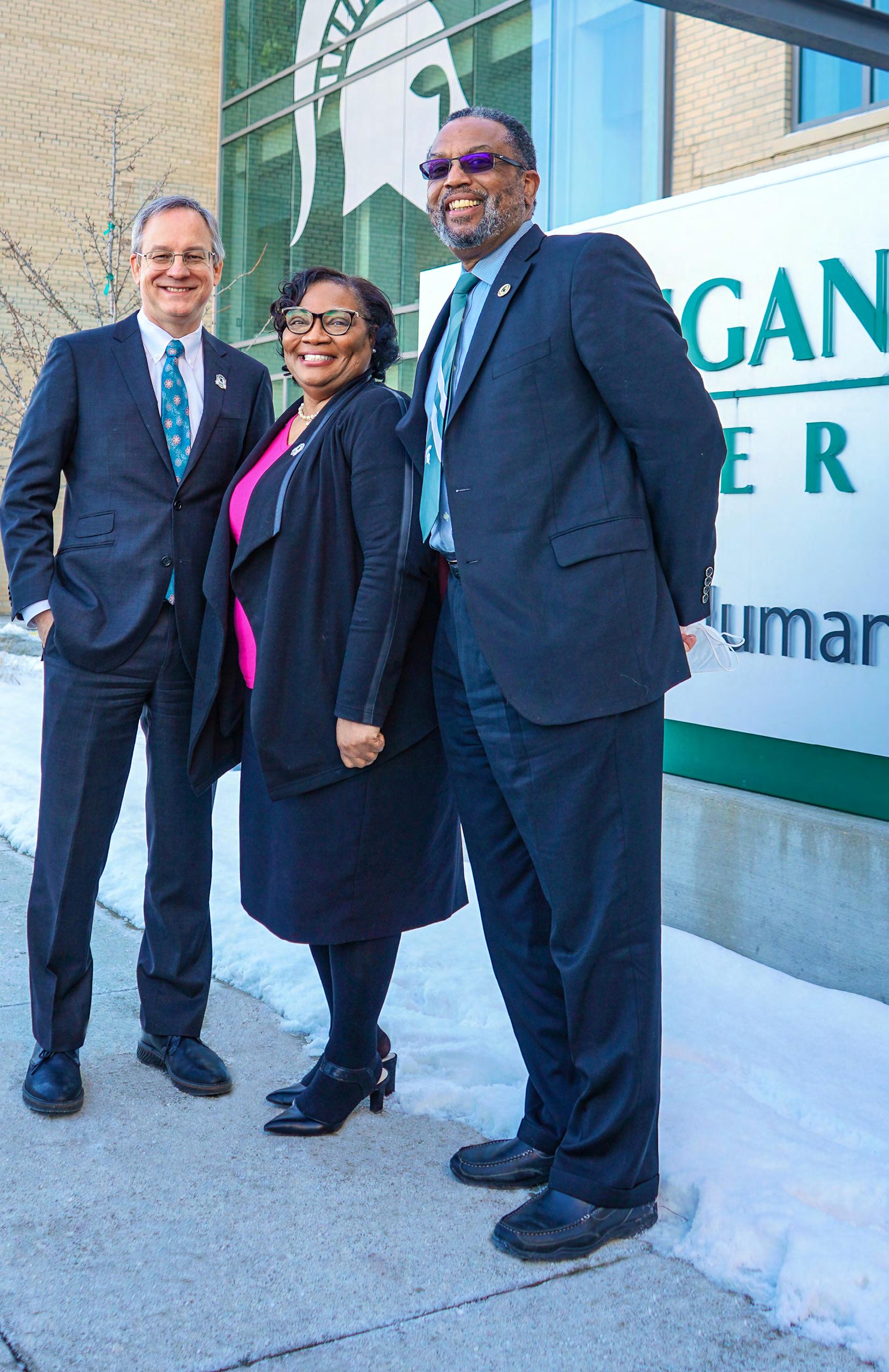

Emphasizing health equity solutions, the Charles Stewart Mott Department of Public Health focuses on population health from its home base – the College of Human Medicine’s Flint campus. Being embedded in the Flint community allows our faculty and researchers to understand the assets and needs of the community while studying Flint’s most pressing public health issues.
We are committed to working side-by-side with community partners and health care providers in a community identified and community participatory public health model.
Currently seeking established researchers with highly impactful programs of implementation, intervention, and policy research in topics that are both relevant to Flint and widely applicable. These include equity, social determinants of health, behavioral health, healthy behaviors, chronic disease, maternal-child health, and environmental justice, among others.
Learn more about becoming an associate or full professor tenure system (job no. 971211) and pursue your public health passions on a highly successful research and instructional team.
QUESTIONS MAY BE DIRECTED TO: Jennifer E. Johnson, jjohns@msu.edu
Founding Chair, Charles Stewart Mott Department of Public Health
View open positions at careers.msu.edu.
* Endowed positions available.

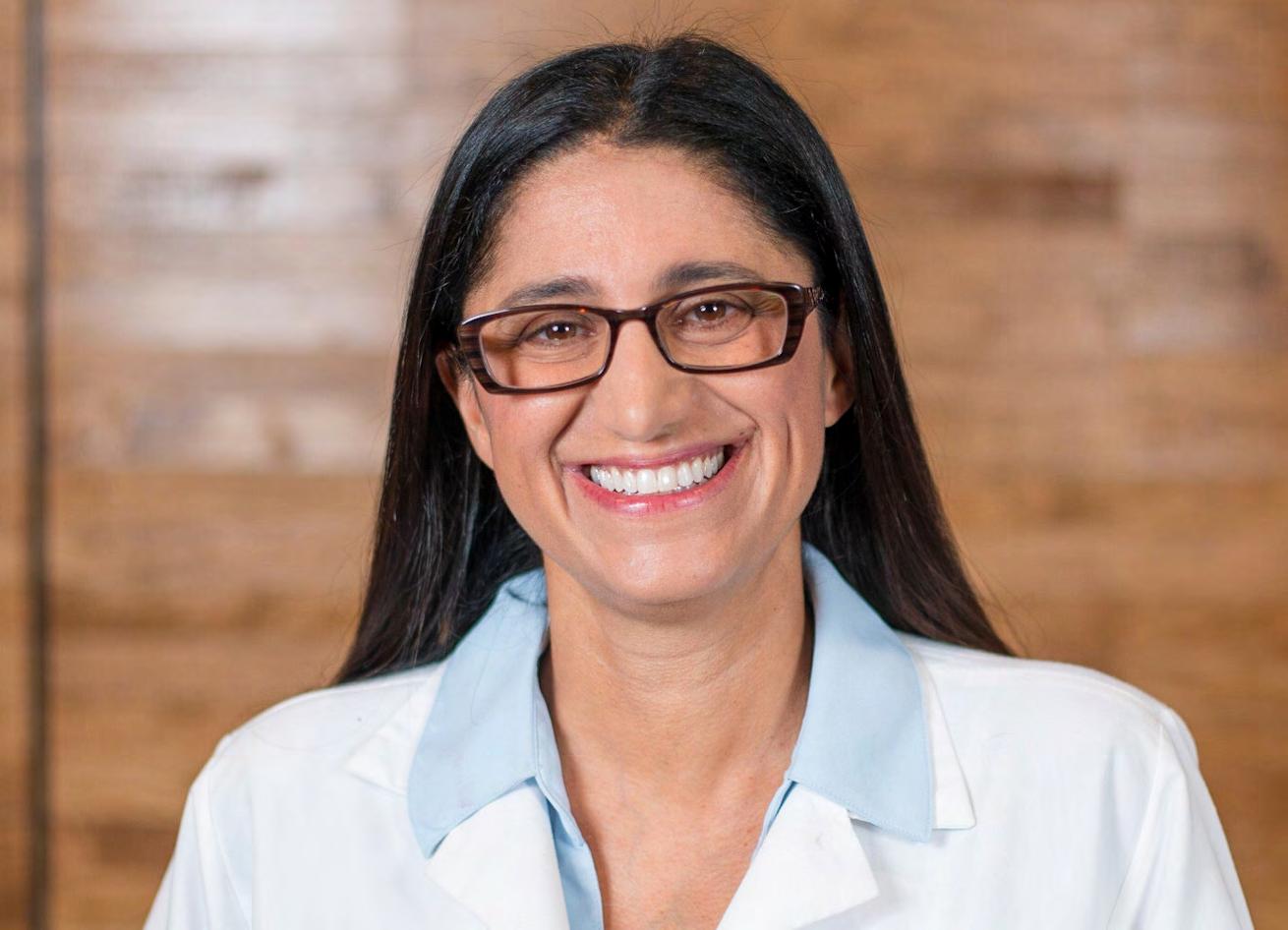
Dr. Hanna is the associate dean for Public Health and C.S. Mott Endowed Professor of Public Health. She is the founding director of the Pediatric Public Health Initiative, an innovative partnership of MSU and Hurley Children’s Hospital in Flint, Michigan. A pediatrician, scientist, activist, and author, Hanna was named one of Time magazine’s 100 Most Influential People in the World and recognized as one of USA Today’s Women of the Century for her role in uncovering the Flint water crisis and leading recovery efforts.
She is reimaging how society can come together to eliminate infant poverty with a first-in-the-nation mother and baby universal cash prescription program, Rx Kids. She has testified multiple times before the U.S. Congress, lectures at dozens of colleges and universities, and contributes to national media outlets championing the cause of children in Flint and beyond. She is the author of the New York Times 100 most notable book, What the Eyes Don’t See: A Story of Crisis, Resistance, and Hope in an American City.

A model health equity program, the mission of the Pediatric Public Health Initiative is to improve outcomes for Flint kids and kids everywhere.



A multidisciplinary team of experts work in partnership with a parent and youth advisory on the following issues:
- Maternal and Infant Poverty
- Child Health and Development
- Nutrition
- Exposure Assessment
- Health Informatics
- Child Health Policy and Advocacy
+$101 million in funding
> 60 staff; economic & employment engine in the city of Flint
+900 families and 300 babies enrolled in Flint Rx Kids with over $2.2M in cash prescriptions
+200 families enrolled in positive parenting family support program
City-wide State of Flint Kids dashboard
Successful translation of practice to policy
+6,000 Born to Read bundles distributed
+90,000 books distributed to 14 medical offices with Reach Out and Read

The U.S. Census Bureau’s annual poverty data shows an increase in child poverty. That means about 1 in 7 kids in America are living in poverty. That’s unacceptable. That’s why the Rx Kids team is doubling down its efforts to lift families out of poverty and give them the resources they need to thrive.

Flint Sparks a Movement: Thanks to a growing public-private partnership, more than $3M in cash has been prescribed to more than 1,000 city of Flint families. Early findings from the nation’s first citywide universal and unconditional maternal and infant cash prescription program reveal positive outcomes consistent with existing extensive evidence on child cash benefits with strengthened family financial security and improved maternal mental health and wellbeing.

Expansion into Kalamazoo and Beyond: Building on our amazing success in Flint, Rx Kids has officially expanded to Kalamazoo! With this expansion, we’ll support more than 800 moms and babies in 2025. From Kalamazoo to the Upper Peninsula, we can’t wait to announce more Rx Kids expansion communities.

A historic national policy opportunity: Included in Vice President Harris’ recent campaign proposal is a plan to provide a $6,000 newborn benefit to families for the first year of a baby’s life. This mirrors our work and vision for Rx Kids — to support and lift up babies early in life.
Amy Saxe-Custack, PhD, MPH, RDN
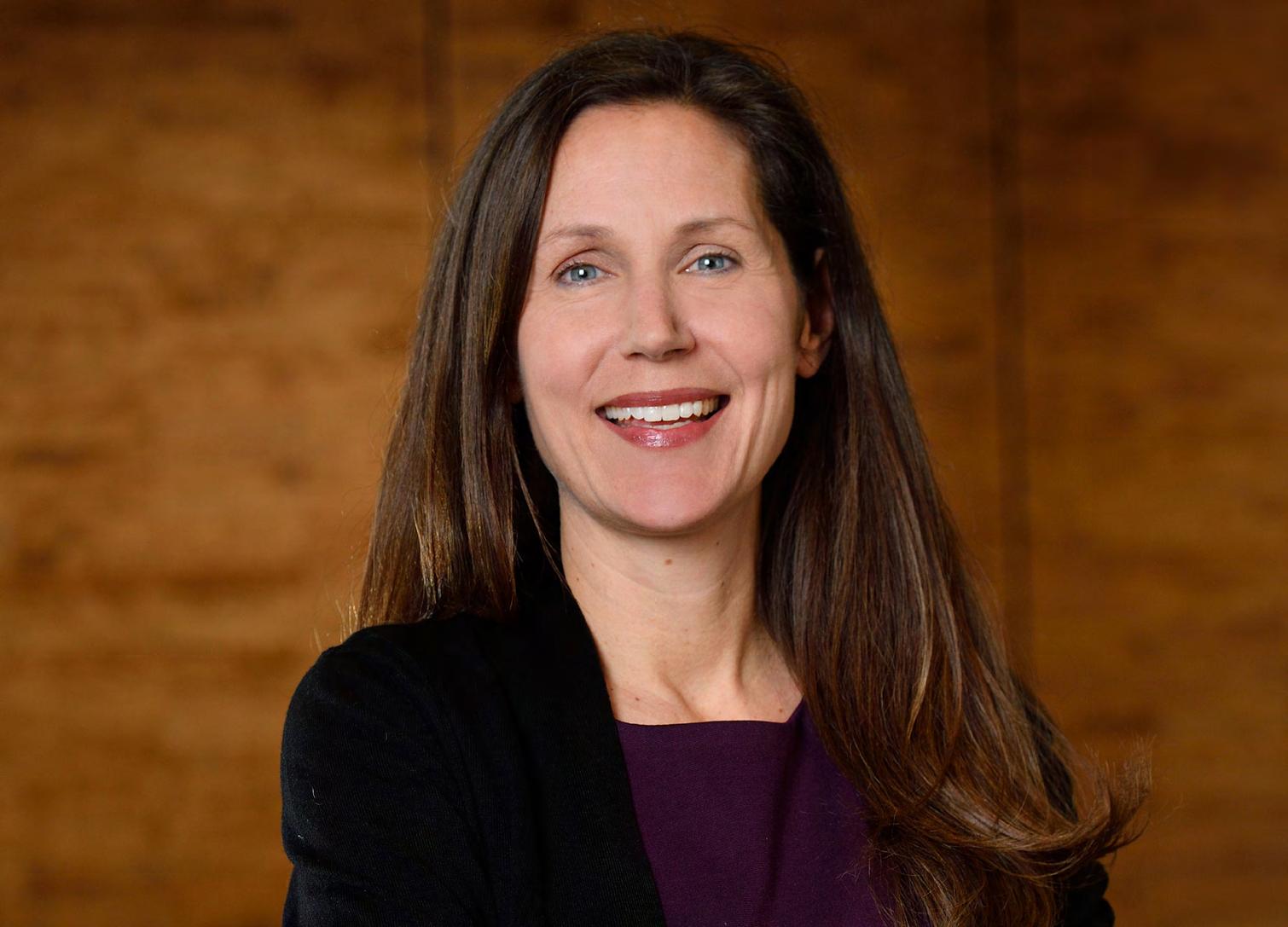
Dr. Saxe-Custack is a registered dietitian and serves as the Nutrition director for the Pediatric Public Health Initiative, a joint effort between Michigan State University and Hurley Children’s Hospital, to address the impact of Flint’s lead exposure on children.
Dr. Saxe-Custack is dedicated to the evaluation and expansion of nutrition programs for children and families living in Flint, with a particular focus on improving access to fresh foods. Her work examines the impact of an innovative fruit and vegetable prescription program for pediatric patients. She works with community partners on an experiential nutrition and cooking program for Flint children called Flint Kids Cook.



Flint Kids Cook is a free, healthy cooking program for youth created by a team of registered dietitians, public health professionals and chefs. Grounded in social cognitive theory, Flint Kids Cook is designed to improve self-efficacy for healthy cooking through interactive nutrition and food preparation activities. Flint Families Cook is a 5-week virtual cooking class offered to the whole family.
Over 600 children have participated in Flint Kids Cook and Flint Families Cook

Similar to medical prescriptions, fresh fruit and vegetable prescriptions are ordered by pediatricians and given to patients ages 0 to 18 during office visits. Vendors treat prescriptions ($15 each) as vouchers that may redeemed for fresh produce.
+145,00 prescriptions for fresh fruits and vegetables have been distributed in Flint, MI
From practice to policy: U.S. Farm Bill national adoption of produce prescription program in 2018
Nicole Jones, PhD, MS

Dr. Jones is a T-32 trained perinatal epidemiologist, faculty member in the MSU Charles Stewart Mott Department of Public Health. With a career focused on applying epidemiologic methods to establish cohorts for evaluating racial disparities in health, she has over 20 years of experience on research teams centered on maternal and child health projects.
As a Principal Investigator of the CDC-funded Flint Registry, she strives to elevate the voices of the Flint community in the way that the Flint Registry is designed, implemented, and shared with others. A lifelong resident of Genesee County, she is inspired by the resiliency and spirit of the Flint community. With over 21,000 enrollees who have received over 35,000 referrals to health and development services, the Flint Registry is playing a critical role in Flint’s recovery from the water crisis.

The Flint Registry is a resource to see how the people of Flint are doing and provide support for those impacted by the water crisis. After completing a survey, individuals are referred to services that promote health and development such as education, health and nutrition programs. Support, especially for children, includes referral to Genesee Health System Neurodevelopment Center of Excellence – a new, no-cost child development assessment center.
The Flint Registry is modeled after other public health registries, like the World Trade Center Disaster Registry. The Flint Registry is for anyone who was exposed to lead-contaminated water because they worked, lived, went to school, or daycare identified as an address on the Flint water system from April 25, 2014 – October 15, 2015, including children who were prenatally exposed. The Flint Registry is for all ages.
+21,000 people enrolled 35,000 referrals to services

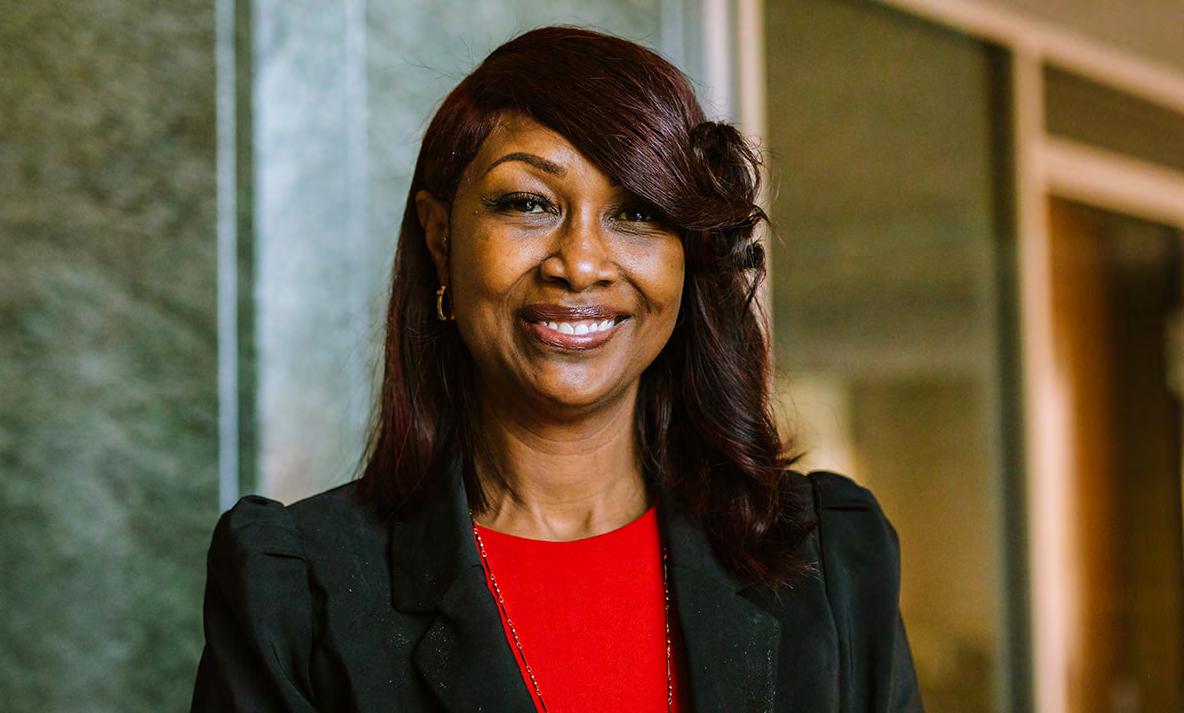
Dr. Dotson serves as the director of Community-based Implementation and Engagement in the Michigan State UniversityHurley Children’s Hospital Pediatric Public Health Initiative/Flint Registry. Kenyetta is a lifelong resident of Flint, MI. She works to encourage positive systemic change throughout the city of Flint and Genesee county. Dotson has more than 30 years of community development experience, serving as an advocate for youth, families, and those susceptible to the culture of violence. Kenyetta is co-chair of the Community Advisory Board for the Flint Registry, leads the Pediatric Public Health Youth Advisory Council, is an active member of a nationwide and local Violence Prevention Network, and serves on many non-profit and community boards. She completed her doctoral degree at Ashland University, in Black Church and African American Studies.
“As a longtime Flint resident, I remain heavily involved in the issues of fairness, equality, social justice, violence prevention, and longevity for today’s youth and families. Instilling hope and bringing about transformative change is how I can help break generational cycles of violence.”
Gayle Shipp, PhD

Dr. Shipp is a community-based participatory nutrition researcher and Registered Dietitian focusing on improving maternal and child health equity, particularly through projects addressing breastfeeding disparities among African Americans. She completed an NIH funded postdoctoral fellowship (2020-2022) funded through Environmental Influences and Child Health Outcomes, ECHO program, focused on perinatal epidemiology and design of intervention studies. She received an RWJF, Health Equity Scholars for Action (2024-2026), award to evaluate a community-based maternity care model and engage partners in prenatal and antenatal initiatives supporting families in Flint, Michigan. Additionally, she leads a collaborative project focused on understanding the birthing experiences of Black women in Michigan.
Dr. Shipp served as the chair of the statewide breastfeeding coalition (2019-2022) and continues to serve as a board member with Michigan Breastfeeding Network to support breastfeeding families within Michigan.
Eric Finegood, PhD
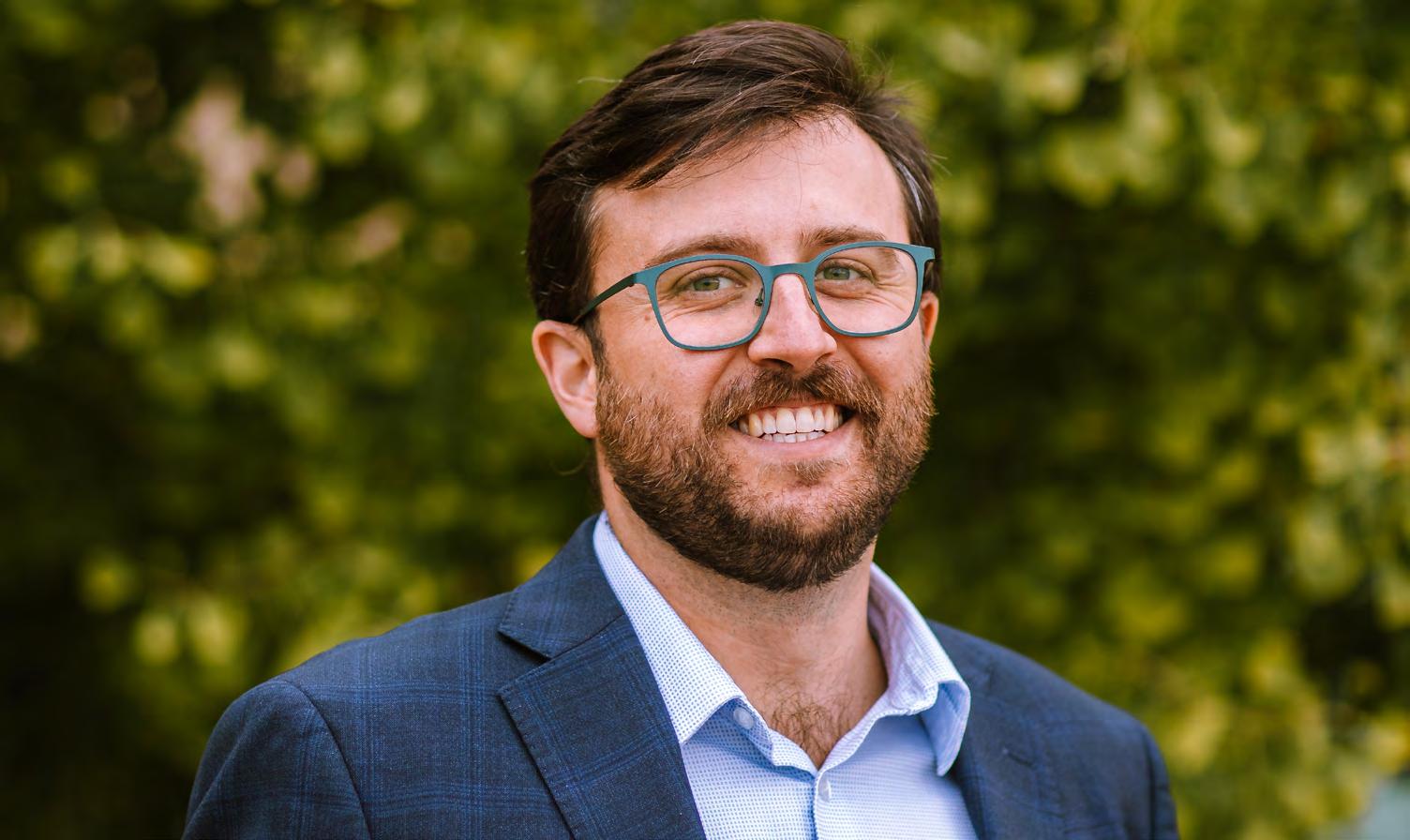
Dr. Finegood is a developmental scientist whose research investigates how early life experience and psychological stress influence health and human development.
His research is rooted in and intersects the science of child development and developmental psychology, health psychology, and public health and seeks to identify biopsychosocial factors that contribute to risk and resilience among young people exposed to social adversities and environmental stressors.
A primary focus of this work is to study connections between life experience and the development of biological systems that regulate mental and physical health processes – the broader goal of which is to better understand and address stress-related disparities in health that may begin in the early years of life. His work has been published in leading scientific journals and edited volumes.
Robert Wahl, DVM, MS
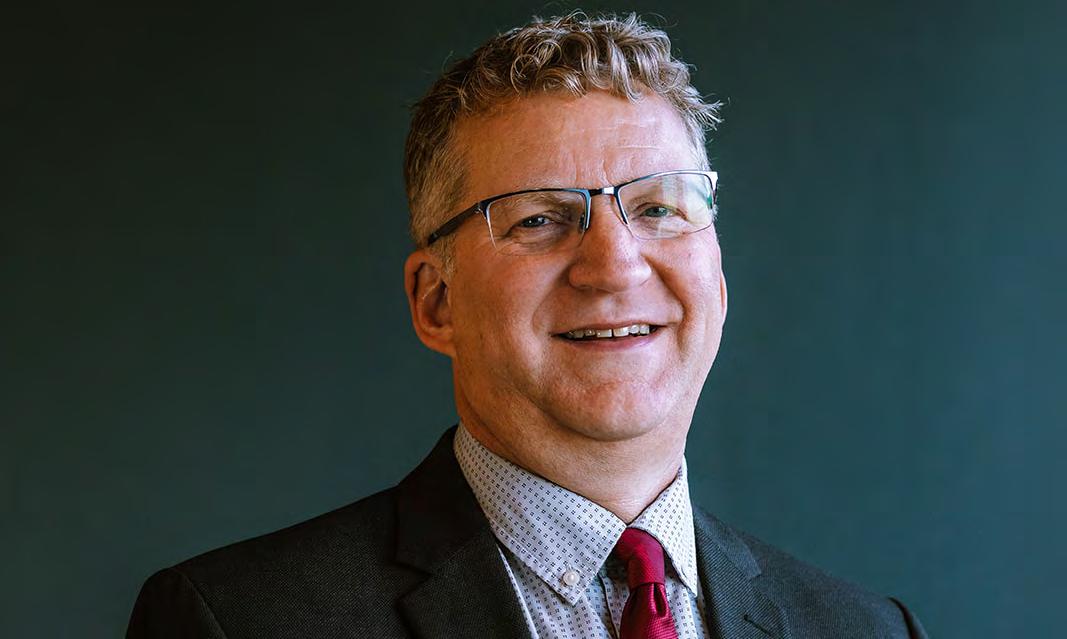
Dr. Wahl is an environmental epidemiologist with research interests focusing on asthma surveillance, air pollutants’ effects on asthma and adverse birth outcomes, and the health effects of climate change. He is a Co-PI on a federal Housing and Urban Development grant looking at using portable air filtration devices to reduce indoor exposure to lead dust in contaminated homes. He has extensive experience in grant authoring and management, serving as the PI on four cooperative agreements funded by the Centers for Disease Control and Prevention and one funded by the Environmental Protection Agency.
He previously managed the Chronic Disease Epidemiology and Surveillance and Program Evaluation Sections at the Michigan Department of Health and Human Services where he collaborated on a home-based environmental intervention and education program for families of children with asthma. He teaches in the MPH program where he introduces students to “real world” connections between research and policy implications. Courses taught include Epidemiology and Public Health and Study Design and Research Methods for Public Health Practice.
Jennifer E. Johnson, PhD
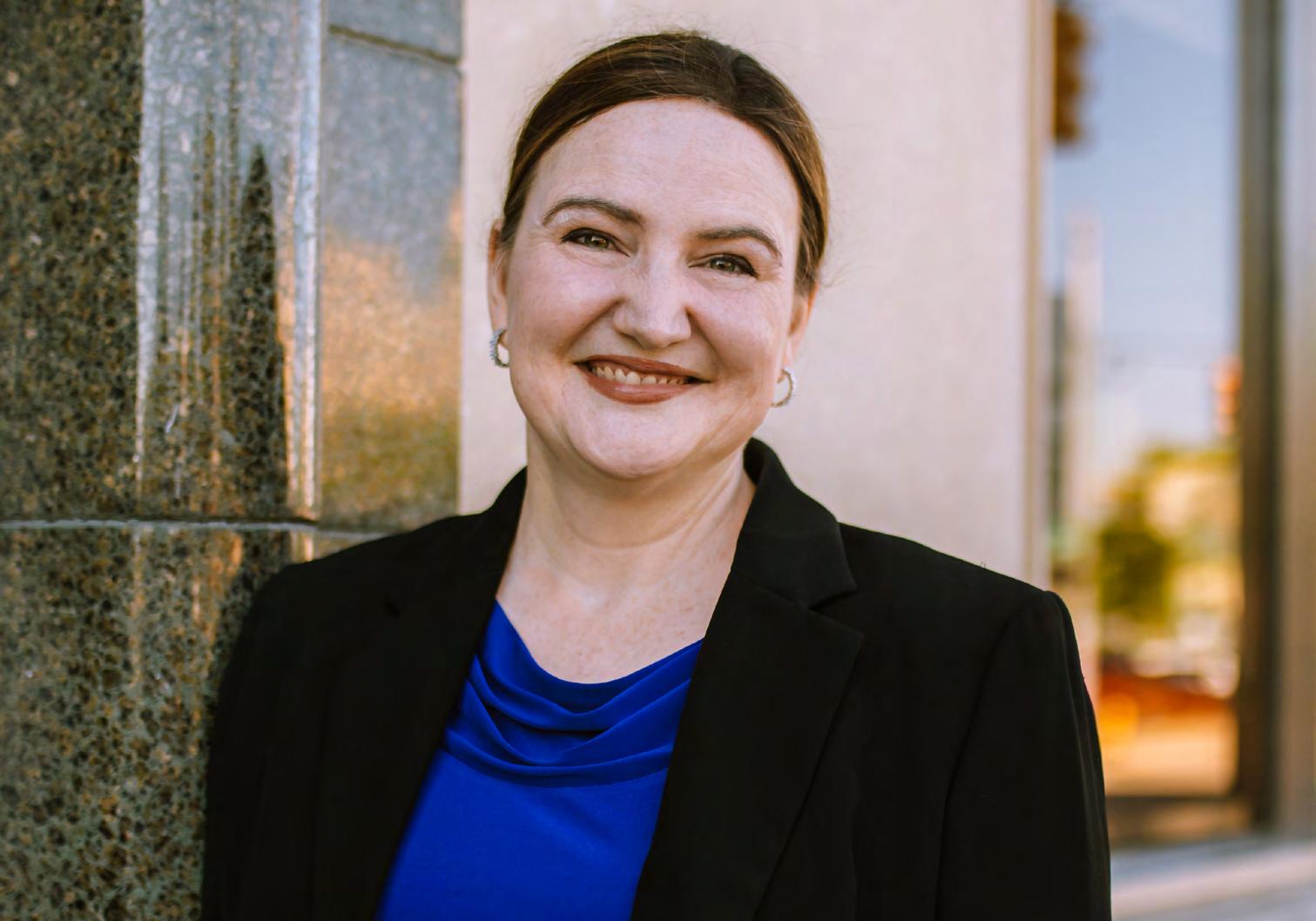
Dr. Johnson is the inaugural Chair of the Charles Stewart Mott Department of Public Health and the first C. S. Mott Endowed Professor of Public Health at Michigan State University. She is also the Chief Translation Officer in the Office of Health Sciences at Michigan State University. She is a licensed clinical psychologist who conducts policy-relevant mental health, suicide prevention, and maternal health care implementation and effectiveness research. Her work champions health care access and equity for individuals interacting with criminal-legal systems, pregnant and postpartum people, and people living in disinvested communities such as Flint, Michigan.
She has been a principal investigator of 21 research studies funded by the National Institutes of Health, including the National Center for Health and Justice Integration for Suicide Prevention (NCHATS) and the Maternal Health Multilevel Interventions for Racial Equity (MIRACLE) Center of Research Excellence in Women’s Health.
Nationally Funded Projects

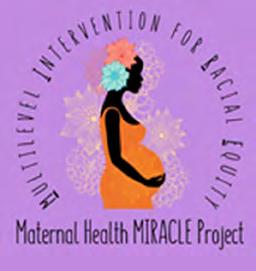

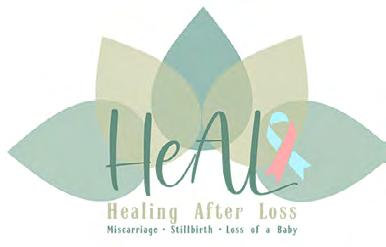


National Suicide Prevention Research Center (NCHATS; P50 MH127512)
National Suicide Prevention Research Center www.nchats.org
Maternal Health Multilevel Intervention for Racial Equity (U54 HD113291 & R01 MD016003)
Project that partners with community organizations and health systems in Genesee and Kent Counties in Michigan to address maternal health inequities.
The ROSE Scale-Up Study (R01 MH130948 & R01 MH118680)
Postpartum depression prevention program recruiting healthy pregnant people nationally: www.rosemom.org
Healing After Loss (R01 HD110471)
Pregnancy and early infant loss counseling research project for women 18-50 years old living in Michigan.
Implementation Mechanisms of Stepping Up (R01 MH118680)
National initiative to reduce the number of people with mental illnesses in jails through a better connection to mental health.
Flint Women’s Study Community Action Network
Action council that meets to address needs and to support initiative and action items identified from women in Flint. services in the community.

$10M NIH-funded Maternal Health Research Center
A new state of Michigan center led by researchers at Henry Ford Health + Michigan State University Health Sciences and Corewell Health will study ways to reduce an alarming number of pregnancy associated deaths and complications, particularly among African Americans, Hispanics, and rural residents.
The Multilevel Interventions to Advance Maternal Health Equity Center, or MIRACLE, is one of 10 funded by NIH. The center will test multiple, community-informed interventions to eliminate the disparities in illness and death during pregnancy and postpartum.
African American women are three to four times more likely to die of pregnancy related causes than white women and three times more likely to suffer severe complications, such as stroke or hemorrhaging.
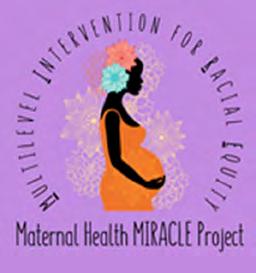
Bringing real-world changes to improve the health of pregnant and post-postpartum people
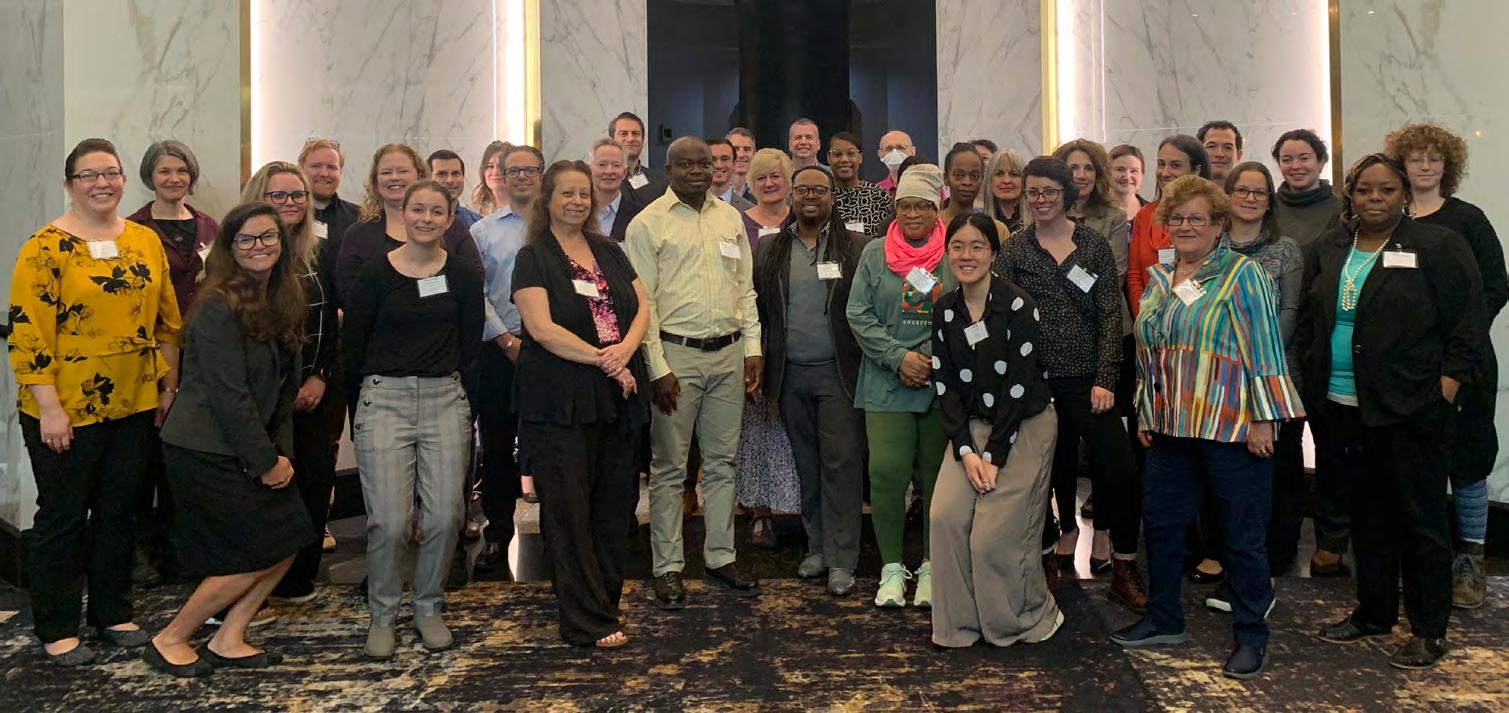
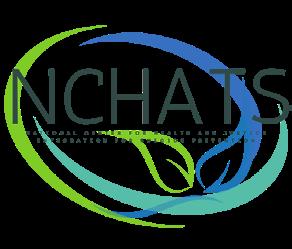
NCHATS is helping to identify individuals at risk for suicide and connect them to community care by harnessing the power of information. Michigan State University, Henry Ford Health, and Brown University are leading an innovative effort utilizing contact with the justice system to indicate suicide risk. By connecting fragmented information between health care organizations and justice systems, the center aims to improve care coordination and change national policy for better mental health support in the United States.
A newly published study found that one in five U.S. adults who die by suicide spent at least one night in jail in the year prior to their death. Rapidly and efficiently providing prevention, screening, and outreach resources for this group, who are not often well-connected to care, is critical to reducing the national suicide rate.
1st evidence-based treatment for major depression in an incarcerated population
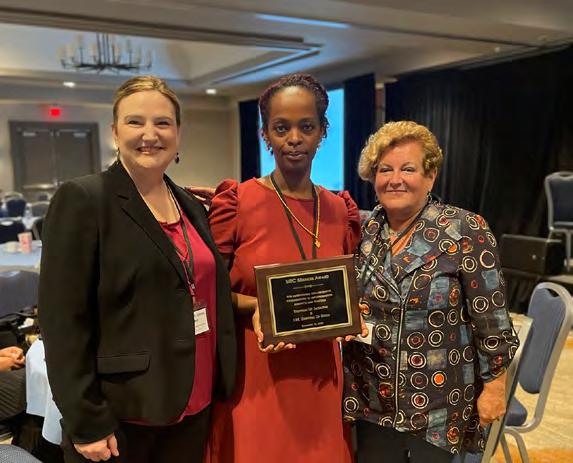
The I.M. Stepping Up Initiative won the inaugural 2022 Society for Implementation Research Collaboration Mission Award.
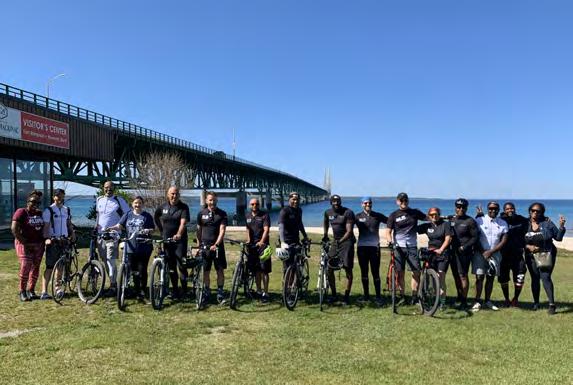
Ride for Equity: Dr. Johnson biked over 60 miles with Black Leaders of Detroit to raise money for Black entrepreneurs and bring awareness to equitable funding practices.
A team of clinician researchers and community members work closely to improve mental and maternal health:
- Mental Health
- Suicide Prevention
- Maternal Health
- Postpartum Depression
6th highest NIH funding in the country for public health
*Blue Ridge Institute for Medical Research Report ‘23
> $72 million in NIH funding
100s of providers trained in evidence-based practices to reduce maternal mortality disparities in two counties, affecting 8,100 births to African American mothers
98 agencies trained to provide prenatal services in evidence-based postpartum depression prevention
100s of cases of postpartum depression prevented
+3000 individuals in pretrial jail detention provided with suicide assessment and triage
1st evidence-based treatment for major depressive disorder following a miscarriage, stillbirth, or neonatal death
1st evidence-based suicide prevention intervention for the 10+ million individuals passing through pretrial jail detention each year 1st

Dr. Hailemariam Debena is an assistant professor, mental health epidemiologist, and advocate for equitable mental health care globally. Her research interests include mental health care for underserved populations in low-resource settings including lowincome settings within high-income countries. Her research focuses on developing peer provider-delivered mental health interventions to improve access to mental health services, functioning, quality of life and reduce mental health symptoms. Her research is guided by understanding and addressing barriers to mental health care that are disproportionately experienced by underserved populations including perinatal women, rural residents, and individuals with criminal legal system involvement.
Developing peer-provider-delivered behavioral health interventions:
• Peer Navigation for Individuals with Serious Mental Illness Leaving Jail (R34 MH118402)
• MOSAIC (MOthers’ AdvocateS In the Community) for Perinatal Women with Experience of Intimate Partner Violence (R34 MH127061) (recruiting)

Dr. McCoy White is an academic research specialist coordinating community-partnered anti-racism interventions. She supports Flint community members on Dr. Jennifer Johnson’s and Dr. Steve Ondersma’s teams. She works on the Maternal Health Multilevel Intervention for Racial Equity (MIRACLE) study, an NIH-funded multilevel intervention study on African American maternal morbidity and mortality in Genesee and Kent Counties.
Dr. McCoy White facilitates testing of vaccine promotion content in ongoing implementation contexts. She is developing a series of computer-delivered messages, videos, and micro-interventions designed to promote vaccination of pregnant patients for COVID-19, and newborn infants following CDC and AAP guidelines.
Using a community-level intervention expands access to and acceptability of enhanced prenatal and postnatal care services for African American women. This project raises awareness of potentially life-threatening warning signs during and after pregnancy.
Wayne R. McCullough, PhD, MA
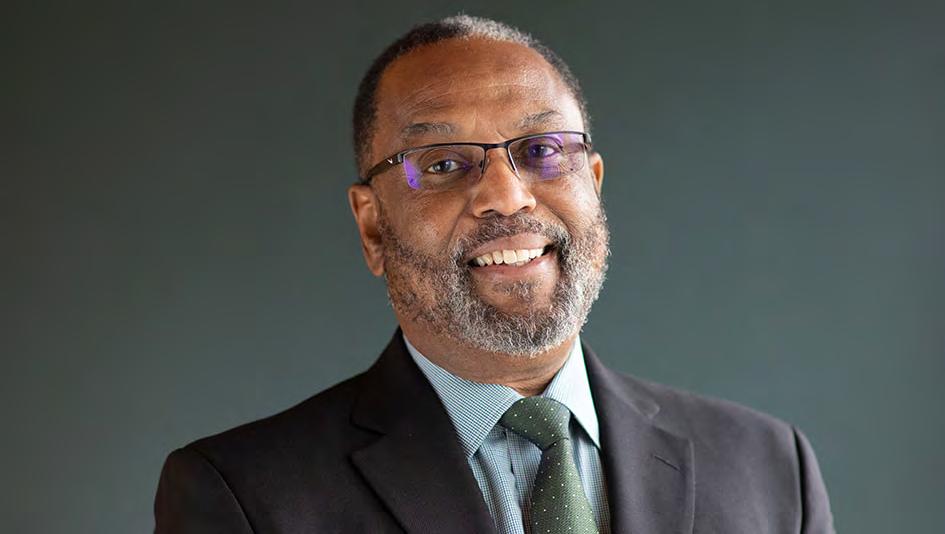
Dr. McCullough is the director of the Master Public Health Program. He is responsible for public health education and curricular changes that are responsive to the evolving public health environment. He led the successful conversion of the Division into the Charles Stewart Mott Department of Public Health and the application process for the Council on Education in Public Health accreditation. His research interests include:
• The identification and resolution of health and health delivery disparities for underserved populations
• Driving research findings into experienced community benefits
• How communications can help advance underserved communities and population health
Dr. McCullough is very active in the Association of Schools and Programs of Public Health (ASPPH) and he conducts research on men’s health issues—especially those of Black men— centered on mental health, depression, diabetes, and cardiovascular diseases.
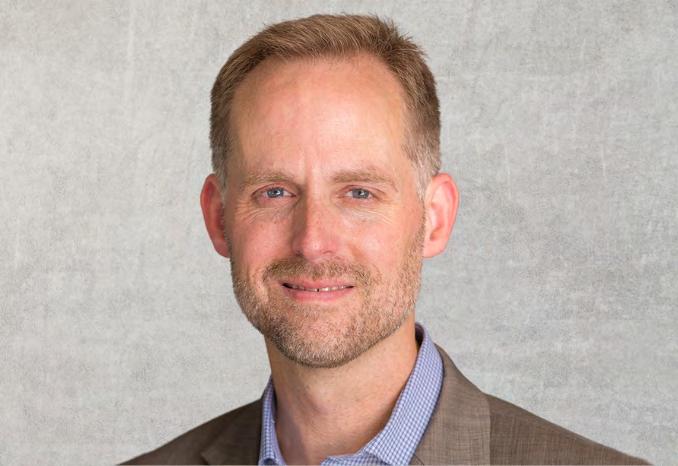
Dr. Ondersma is a clinical psychologist, C.S. Mott Endowed Professor of Public Health, and associate chair for research. His research is focused on the promotion of maternal and child health and healthy birth outcomes using high-reach technology-delivered brief interventions. His primary interest is in population-level interventions promoting maternal and child health in underserved communities, particularly via technology-based brief interventions promoting behavioral health and connection with services in the perinatal period. He has led multiple NIH and CDC studies focusing on the development, validation, and implementation of novel screening techniques and electronic/mobile (mHealth) interventions in healthcare settings.
He is currently leading a confirmatory trial testing an electronic intervention for alcohol use in pregnancy, as well as a new project using a multi-level technology-driven intervention to reduce maternal morbidity and mortality. He is also the developer of the Computerized Intervention Authoring System, an NIH-funded, non-commercial research resource allowing the development of sophisticated digital interventions without coding.

Community-engaged research using technology to promote better birth outcomes.


NIH-funded, open-source, and non-commercial online resource allowing researchers to create and manage digital interventions without coding of any kind.
This MDHHS-funded program provides digital screening, brief intervention, service referrals, summary reports, and visualized aggregate data to prenatal care clinics throughout the State of Michigan.

Part of the NIH-funded MIRACLE Center of Excellence, this project is testing a multi-level, collaboratively developed digital intervention (the MI MOM app) designed to reduce maternal morbidity and mortality.

Dr. Key is an associate professor, associate chair for community cartnered institutional administration, and classically trained health disparities researcher. He is an expert in building equitable relationships between community and academic partners for health research and elevating community-identified health priorities to the research enterprise. Dr. Key utilizes Community-Engaged Research (CEnR) approaches to research with a focus on marginalized populations across the lifespan. He has worked on national, regional, and local levels throughout his career to translate the resources of government, research partnerships, and foundations into practical support. He is a NIH-funded researcher serving as PI on 4 studies and Co-I on numerous others. He is past chair of the Community Based Public Health Caucus of the American Public Health Association. Dr. Key is the founder of the Community Ethics Review Board, a component of the Community Based Organization Partners (CBOP) where community members conduct ethical reviews of proposed research projects to ensure that no harm is done on a community level and to assess mutual benefit. He is the department administrator for the Social Determinants of Health Solutions Lab and the Community Co-Governance Council. Dr. Key is a 2016 Fellow of the Robert Wood Johnson Foundation Culture of Health Leaders Program and serves on the national landscape as a health equity scholar. In 2020, he authored a resolution, Declaring Racism as a Public Health Crisis, and has spearheaded initiatives locally, regionally, and nationally.
“For the past three decades we have not seen a significant decrease in health disparities. To continue to conduct traditional research as is, will not yield the reduction of health disparities across health indicators. It is time to equitably engage the communities we are trying to impact in the planning, design, and all phases of the research process.”
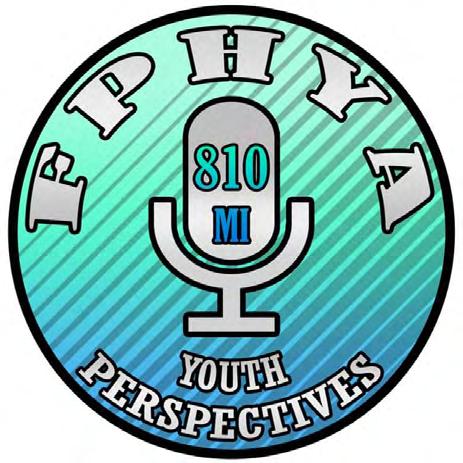
The Flint Public Health Youth Academy FPHYA is designed to provide early engagement and career exploration for Flint area youth, with a specific focused on underrepresented minorities. Since 2019, FPHYA youth have conducted annual Health Messaging Campaigns (COVID-19, Mental Health, and Environmental Health) with the emphasis on designing health messages “for youth by youth”!
+2,000 have participated in the online virtual talk show, “A Youth Perspective” and the annual Youth Summer Camp

Todd Lucas, PhD

Dr. Lucas, C. S. Mott Endowed Professor of Public Health, is a social and health psychologist. His research considers the psychosocial causes of racial health disparities. He is mainly focused on stress and preventive health behavior pathways, such as cancer screening. His research especially considers psychological justice - the causes and resulting health and social consequences of perceiving injustice for individuals and communities. His research focuses on understanding stress reactivity responses to injustice to promoting better uptake of colorectal cancer screening. Dr. Lucas is also leading an NIH Serological Sciences Network for COVID-19 (SeroNet) funded project aimed at communicating effectively about the value of COVID-19 antibody testing and better understanding why COVID-19 causes a disproportionate number of African Americans to suffer severe cases and deaths.


Over 500 Flint residents have learned about SARS-CoV-2 salivary antibody testing, with many choosing to have their own antibodies measured
In partnership with the Flint Community Based Organizations and Partners (CBOP), the research team produced video tutorials about the potential value of antibody testing in the fight against COVID-19. The study also collects saliva samples from willing study participants. In partnership with the Environmental Health, Microbiology, and Immunology Lab (EHMIL) at Johns Hopkins University, saliva samples are then analyzed to measure the presence of SARS-CoV-2 antibodies.
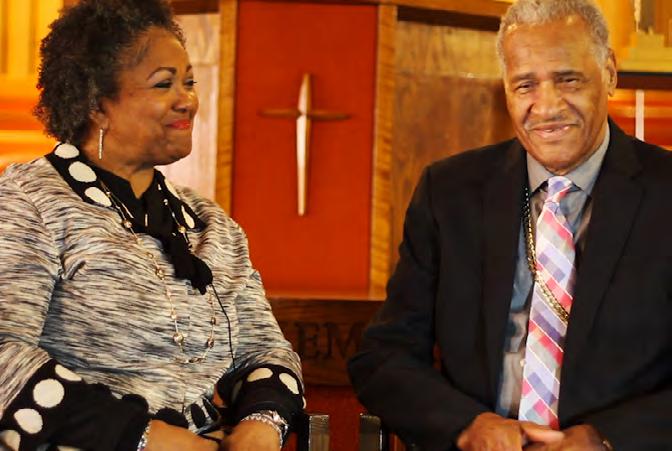
With funding from the American Cancer Society, Dr. Lucas and his research team are working to improve colorectal cancer screening. They are partnering with two Federally Qualified Health Centers in Flint and Detroit.
Colorectal cancer mortality rates are 35 percent higher for African Americans than for non-Hispanic whites
Heatherlun Uphold, PhD, MPH
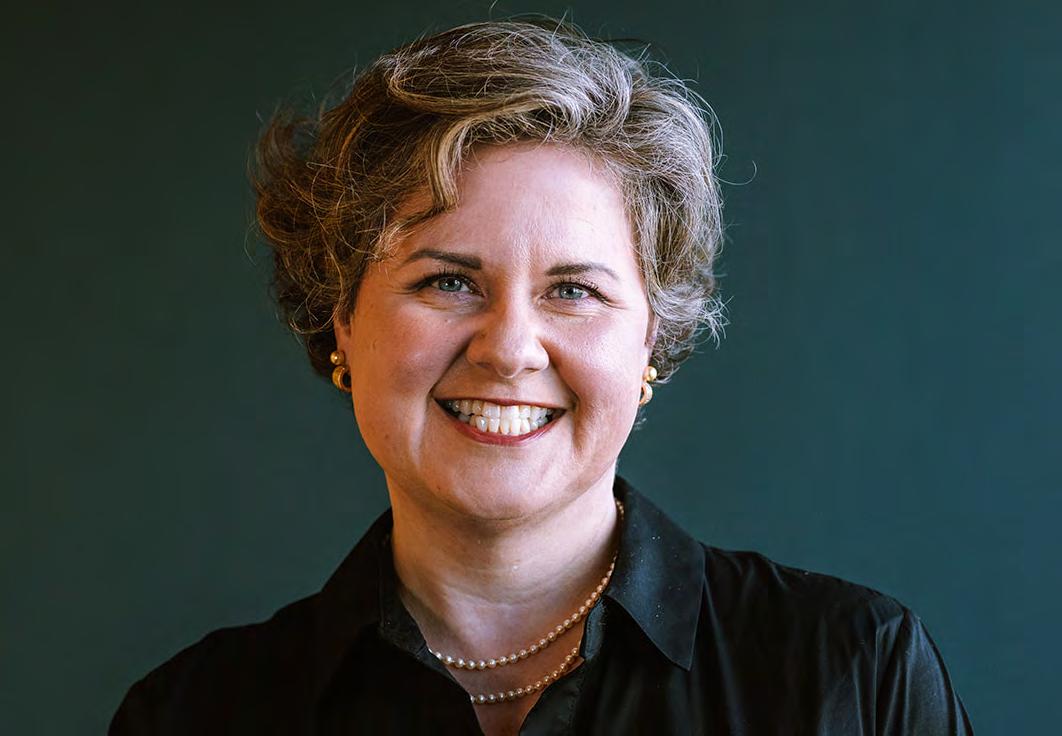

Dr. Uphold is a community-engaged dissemination and implementation science researcher. She leads the National Network for COVID and Adult Vaccine Equity (NNICE), a CDCfunded project to build the evidence base of effective interventions to improve vaccine access and uptake and reduce racial disparities in vaccination coverage for African Americans and Latino adults. The NNICE partners with eight organizations across Michigan, Maryland, Illinois, and North Carolina to support a total of over 70 different projects. To date, the NNICE has reached nearly 8 million individuals and provide over 13,000 vaccines through eight promising intervention strategies to increase adult vaccination.
Dr. Uphold also leads the Health Equity Report Card (HERC) for Flint and Genesee County. The HERC addresses a need for disaggregated health outcome and health disparity data that is accessible and understandable.
Additional research interests include the elimination of health disparities through community-engaged research, and normalizing data disaggregation to identify disparities.
Dr. Uphold is a previous Fellow with the NSF-funded Advancing Research Impact in Society initiative where her project focused on understanding researcher dissemination-as-usual. This work identified the barriers and facilitators that academic researchers face when sharing their research findings with non-academic audiences. It also fueled her interest in reducing the research-topractice gap through audience-centered methods of message distribution.
Dissemination and implementation science could improve the use of evidence-based practices within community-based settings. However, there are preexisting barriers to effective dissemination which includes:

Bringing a local context to a global pandemic: +135 weeks of the Flint Community Webinar on Coronavirus +11,000 views live and +16,000 views on YouTube



The Health Equity Report Card (HERC) supports the health and well-being of Genesee County and city of Flint residents by providing understandable, relevant, and actionable health outcome data. Data is categorized by race and location when available. By understanding the current state of health disparities and outcomes in our community, we can better address their causes and support prevention efforts.
Information includes 50 public health indicators broken down by location (Flint, Genesee County, Michigan, and the U.S.) and by race (Black and White). Each indicator is organized into one of six categories: health services and access, socioeconomic status, physical health, mental health, maternal and child health, and health outcomes.
Black residents in Flint experience a higher rate of infant mortality (14.6 per 1,000 live births) compared to White residents (9.3 per 1,000)
Black residents face significantly higher rates of homicides by firearm (42.5 per 100,000) compared to White residents (2.3 per 100,000)
Dick Sadler, PhD, MPH
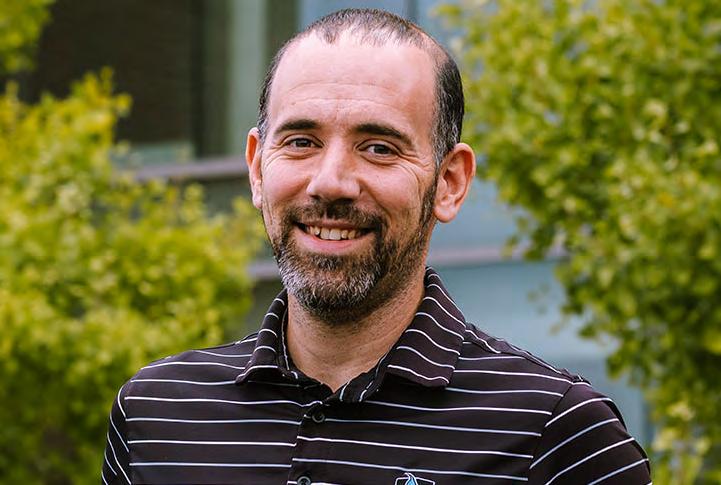
Dr. Sadler is an urban geographer with expertise in environmental science, GIS, food systems planning, and land use policy in legacy cities. In 2018, he was awarded a Bloomberg Fellowship to study at the Johns Hopkins Bloomberg School of Public Health. His research interests include integrating urban planning and public health topics related to neighborhood/built environmental effects on health.
Recently, this has revolved around uncovering elements of structural racism in the built environment (Straße) and determinants of urban development that exacerbate racial and socioeconomic inequality. Methodologically, Dr. Sadler combines spatial analysis and community-based participatory research approaches to address challenges in the urban environment. Throughout his work, the overarching goal is to strengthen the understanding between the built environment and health behaviors/outcomes with the objective of shaping land use policy to build healthier cities.
“Urban planning approaches that recognize and address these underlying determinants are essential for building a more equitable society. Overlooking them created the conditions that caused the Flint Water Crisis, and this practice continues to exacerbate disadvantage for individuals—typically minoritized populations—who live in such communities.”

Dr. Sadler’s work is highly multidisciplinary. He collaborates with a range of psychologists, physicians, epidemiologists, biostatisticians, and geographers to explore linkages between health and the built environment.
Dr. Sadler is always on the lookout for understudied linkages to the built environment—and any reason to make a map. Some of the topics he has worked to address include local food systems, urban agriculture, access to healthy food, crime, urban disorder, blight elimination, residential segregation, and active travel.
Sprawl and fragmentation are correlated to economic stagnation and decline, driving poorer health outcomes
State-sponsored urban disinvestment is closely connected to poor mental health outcomes
Samantha Gailey, PhD
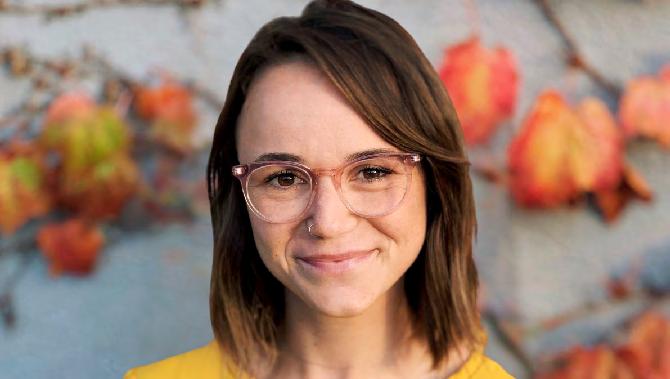
Dr. Gailey is an assistant professor of environmental health equity in the Charles Stewart Mott Department of Public Health and the Department of Forestry. Her research, teaching, and outreach are informed by a commitment to environmental justice and an interdisciplinary approach that integrates theories and methods from epidemiology, psychology, and geography.
Her research focuses on understanding how inequities in access to neighborhood resources contribute to and perpetuate health disparities—and how these place-based inequities can be redressed. Much of her work seeks to understand whether expanding green space access, in particular, can serve as a tool to advance health equity, especially when combined with access to affordable housing, healthy food, and other, more fundamental resources. She focuses her studies on the health of mothers, infants, and children: populations highly susceptible to the salutary and deleterious effects of neighborhoods. One of her most recent projects involves assessing whether the new $36-million Flint State Park impacts physical and mental health via changes in residents’ physical activity patterns, physiological stress levels, and perceptions of environmental quality and safety.

Dr. Clements is a quantitative sociologist by training with an additional specialization in environmental science and policy. He has worked in the fields of environmental chemistry, environmental project management and engineering, grant writing and management, and undergraduate and graduate medical education. His recent research focuses on health outcomes and disparities in people with diabetes and multiple chronic conditions.
He is currently working to shed light on how COVID-19 influenced the course of disease for people with diabetes, focusing on disparities in outcomes that are related to race and combinations of chronic disease, as well as how rural experiences shape disease progression and access to care. He is also interested in how political and religious ideology inform attitudes about science, and while some of his early work focused on environmental issues, he is expanding this to explore how these ideologies affect attitudes about health care, and medical science. He regularly teaches the following courses in the MPH program: PH 802 (Introduction to Biostatistics), PH 862 (Global Pandemics), and courses in two new MPH concentrations in Public Health Data Management and Analytics, and Rural Public Health.
Robey B. Shah, PhD, MS, MPH

Dr. Shah (Champine) is an associate professor in the MPH program, where she teaches courses on social and behavioral aspects of public health and program evaluation. She also leads a free external-facing course called “Promoting Public Health in Michigan in the Face of COVID-19,” which aims to strengthen the MPH program’s ties to local communities and enhance understanding of public health and why it is important in the fight against the pandemic and beyond. She is the 2023 recipient of the Charles Stewart Mott Teacher-Scholar Award and a 2023-2024 Adams Academy Fellow in the MSU Office of Faculty and Academic Staff Development.
Dr. Shah’s research is focused on partnering with communities to design, implement, and evaluate programs for children and families who are exposed to potentially traumatic events. In addition, she has published and presented strategies for infusing diversity, equity, and inclusion in teaching and learning. Dr. Shah earned her doctorate in Child Study and Human Development from Tufts University and completed her NIH T32 postdoctoral fellowship at the Yale School of Medicine. Prior to earning her doctorate, she worked as a psychological and behavioral analyst for the FBI. Dr. Shah currently serves on the editorial board of the Journal of Child and Family Studies and has been an active member of the Society for Research in Child Development.
MPH
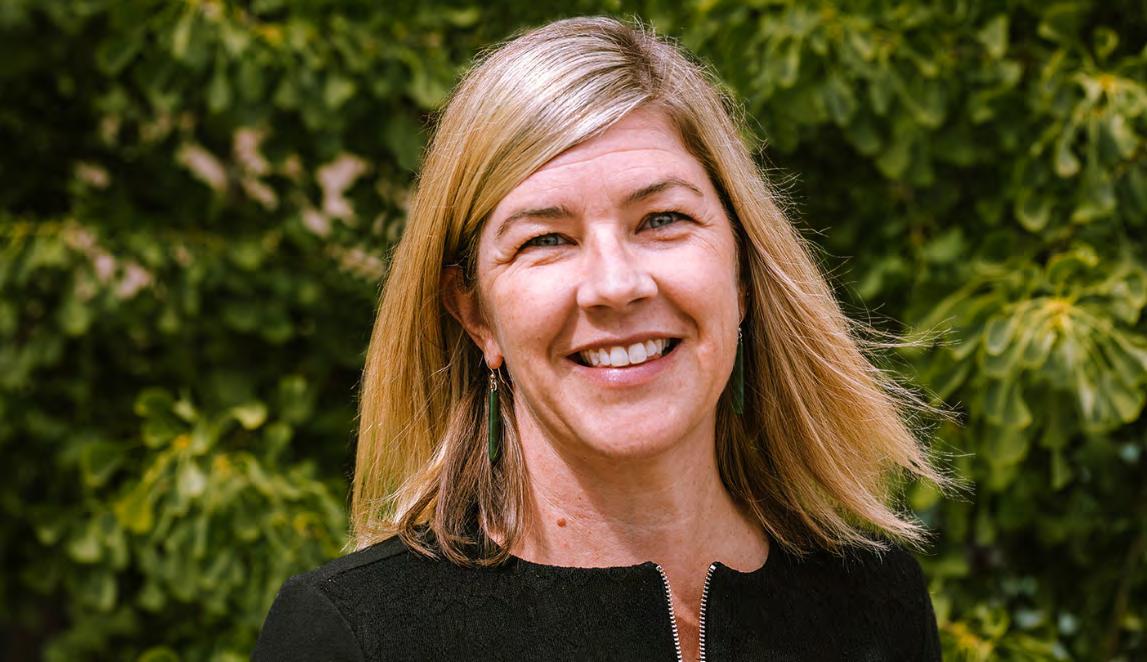
Dr. Pearson is an associate professor with a focus on social justice and neighborhood environments. Her research relates to aspects of the built, social, and physical environment that may bolster opportunities for a healthy life in the face of socioeconomic adversity. She uses spatial and epidemiological methods to answer research questions. Her overall research goal is to understand the interactions between humans and their neighborhoods to improve health and well-being while paying careful attention to historical processes, inequalities and environmental justice.
Her work has been funded by NIH, NSF, The Bill and Melinda Gates Foundation, American Association of Geographers, New Zealand (NZ) Ministry of Health, NZ Health Research Council, Michigan Department of Health & Human Services, MSU’s Clinical and Translational Science Initiative, Vice President of Research and Graduate Studies, Undergraduate Research Initiative, and the Water Science Network. In 2017, she was awarded Undergraduate Mentor of the Year from Michigan State University. In 2018, she was awarded the Emerging Scholar in Health/Medical Geography by the American Association of Geographers.
Brittany Tayler, MD

Dr. Tayler is an assistant professor at the MSU-Hurley Pediatric Public Health Initiative. She completed post-residency training as the second Alice Hamilton Scholar and is currently working on her Master of Public Health from MSU. She works clinically at Hurley Medical Center, working both inpatient and outpatient in both internal medicine and pediatrics, in addition to being a core faculty for the IM, Med/Peds, and Pediatric residencies there.
Her passion is advocacy and community engagement, particularly around tobacco and novel nicotine products, cannabis, and substance use disorder. She serves as the director of the Community and Advocacy Rotation for Hurley Medical Center residents and works closely with a number of different organizations in the Flint and Genesee County community. Dr. Tayler additionally has a strong passion for legislative advocacy and leveraging medical provider expertise and experience in changing public policy. In doing this work, she serves as the co-chair in several groups, including the state-wide coalition Keep MI Kids Tobacco-Free Alliance, the Michigan Chapter of the American Academy of Pediatrics Governmental Affairs Committee, and the Michigan Chapter of the American College of Physicians Health and Public Policy Committee.

Dr. Cederna is a licensed psychologist with expertise in developmental-behavioral pediatrics, medical education, clinical health psychology, and pediatric psychology. Clinically, Dr. Cederna has served over 4,000 kids and families across pediatric primary care, subspecialty clinic, general pediatric and intensive care hospital settings. Dr. Cederna has delivered 57 national and 20 state or regional peer-reviewed workshops and trainings. She’s published 13 peer-reviewed articles and book chapters, developed 10 unique and innovative training curricula, and served as a mentor to many.
Dr. Cederna participates in focus groups with parents and youth, provides outreach to local folks concerned with child mental health, serves on the advisory council for Ele’s Place, and delivers live-time talks with heavy question-and-answer time to deepen communitywide mental health literacy. By applying a research lens to her work, Dr. Cederna aims to monitor the outcomes of her efforts, making adjustments over time, and ultimately contributing to advancing the science of mental health practice while reforming the policies that shape it.

Dr. Zamani-Hank is an assistant professor in the Department of Family Medicine, adjunct assistant professor in the Charles Stewart Mott Department of Public Health, and director of the MSU Primary Care Research Collaborative. Dr. Zamani-Hank is a social and perinatal epidemiologist whose research focuses on studying the role of socioecological influences on racial and socioeconomic disparities in maternal and infant health outcomes using a life-course and health equity lens. Her research is highly interdisciplinary, drawing upon frameworks across epidemiology, public health, developmental psychology, primary care, and quality improvement.
Dr. Zamani-Hank investigates the impacts of adverse childhood experiences on maternal and infant health, and the role of psychosocial protective factors, like social support, in mitigating the risk of adverse birth outcomes and buffering the effects of early life adversity on pregnancy health. Another direction of her research involves understanding the impacts of macro-level policies on maternal and infant health outcomes and racial health equity, including the ACA Medicaid Expansion and the Expanded Federal Child Tax Credit. She is a coinvestigator on the Rx Kids project in Flint, Michigan (PI: Hanna-Attisha), the first-ever citywide prenatal and infant cash prescription program in the United States. In this role, she works with a team of interdisciplinary collaborators to assess the impacts of this innovative, unconditional, and universal program on maternal, infant, and family health and well-being.

Dr. Aspiras is an experimental psychologist with training in social and health psychology. In 2023, she was awarded a three-year postdoctoral fellowship through the American Cancer Society to continue her current work in the department and to further her training in communityengaged cancer disparities research. She was also recently accepted into the Community-Engaged Research Fellows Program at MSU.
Her research primarily focuses on the use of targeted and tailored health education and intervention strategies to promote cancer screening and prevention within underserved and marginalized communities. Within this work, she also seeks to identify and address psychosocial factors at both the group and individual levels that can contribute to cancer disparities, such as medical mistrust. She is especially passionate about increasing human papillomavirus (HPV) vaccination to reduce the risk for HPVassociated cancers and eliminate disparities in HPV-associated cancers among marginalized communities. As part of her postdoctoral fellowship, she is leading a research project that evaluates the efficacy of culturally targeted health education about the HPV vaccine among African American parents in Flint. Alongside this, she is collaborating with the Genesee County Health Department to identify parent-, provider-, and system-level barriers to HPV vaccination and to increase HPV vaccine education and accessibility through partnerships with local healthcare providers.
Vivienne M. Hazzard, PhD, MPH, RD
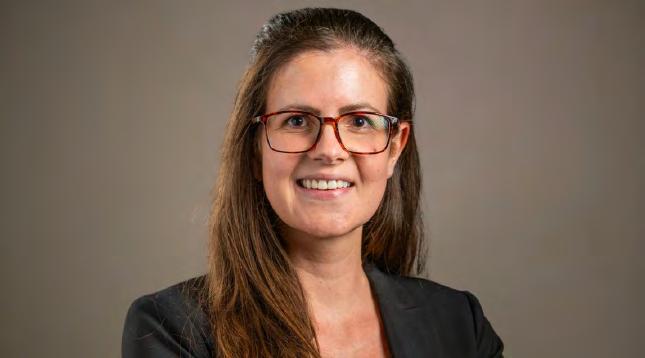
Dr. Hazzard (she/her) is a registered dietitian and public health researcher passionate about improving young people’s relationships with food. The overarching goal of her research is to prevent and reduce disparities in disordered eating and related sequelae (e.g., depression, type 2 diabetes).
A key line of her research focuses on the role food insecurity plays in the development of disordered eating, and her ongoing work increasingly focuses on approaches to mitigating food insecurity itself.
Her research interests include reducing the public health burden of disordered eating, particularly in marginalized populations, advancing food and nutrition equity, and the use of quantitative and qualitative methods.
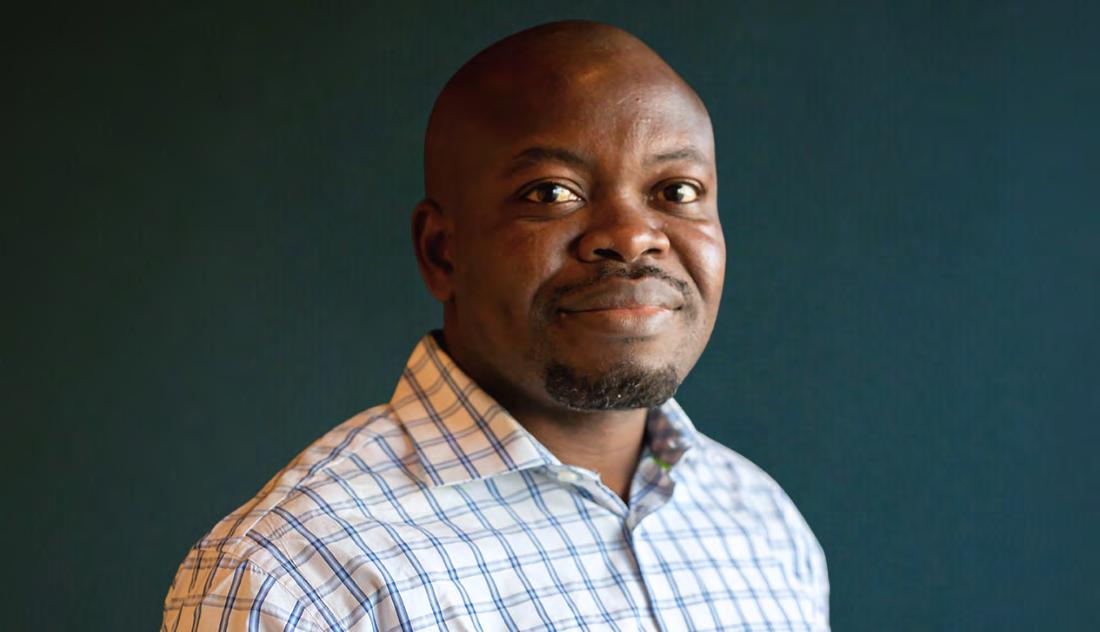
Dr. Chika Chukwuorji is a research associate at Michigan State University supporting the National Center for Health and Justice Integration for Suicide Prevention (NCHATS).
He completed his predoctoral research as a Fulbright scholar at Cleveland State University Cleveland, Ohio USA (2019-2020) and earned his PhD in clinical psychology at the University of Nigeria Nsukka in 2021. He holds editorial positions in several reputable journals.
Dr. Chukwuorji’s research is focused on finding innovative approaches to provide quality mental healthcare for people living with challenging health conditions, forcibly displaced persons, justice-involved individuals, and other vulnerable populations.


Heatherlun Uphold, Assistant Professor
Known as the social determinants of health, there are many factors that determine quality of life, including the conditions in areas where people work, play, live and age; access to education; safe housing; transportation; and nutritious food. Violence, racism and discrimination are also key influencers.
Our approach is to level the playing field by making health-related data and information more accessible and locally relevant so people can make betterinformed choices. New digital tools are leading the way.
The Health Equity Report Card, or HERC, is one example of a digital tool that can help improve quality of life. The HERC is used by communitybased organizations, nonprofits, policymakers and local residents who are interested in data specific to Genesee County and the city of Flint.
We do this work with our community partners because we value their input, perspective and lived experiences,
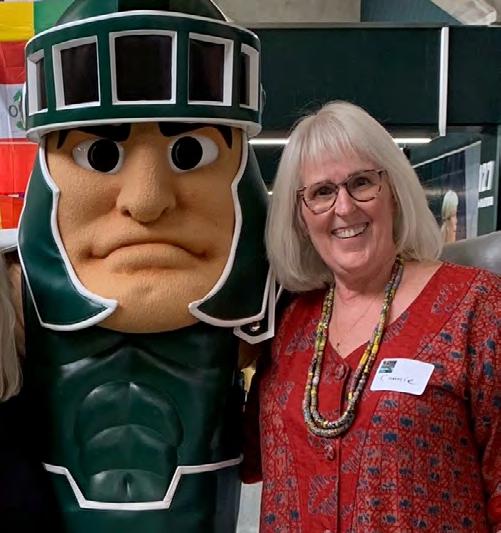

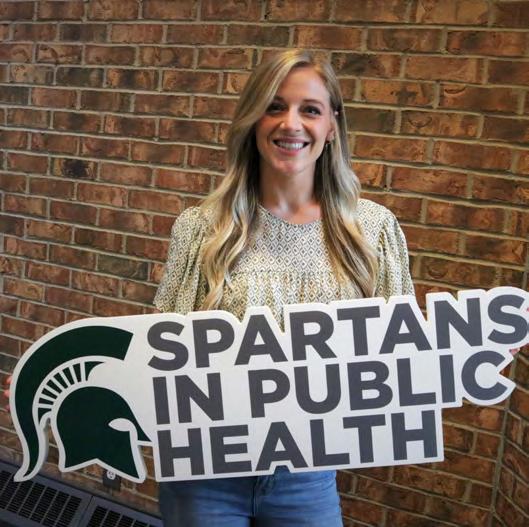



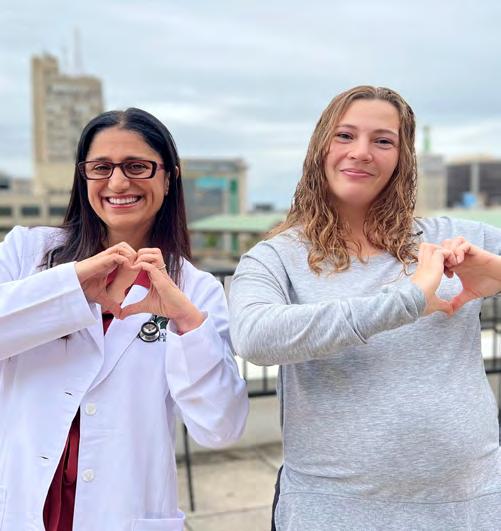
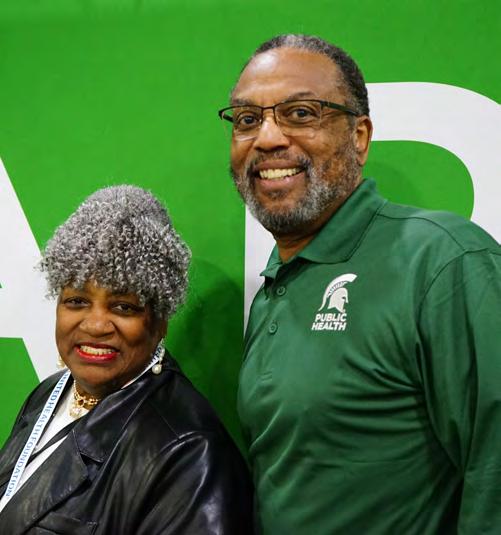


• 100% online curriculum; work while pursuing your degree
• Competitive in-state tuition for all students
• No GRE or any other graduate or professional school test scores for admission
• Personalized mentoring from application through graduation
• Complimentary student membership to the American Public Health Association

Michigan State University offers top-quality online Master of Public Health degrees through the College of Human Medicine. These degrees are the perfect choice for individuals who are passionate about making a significant impact on public health.
The 100% online MPH degrees provide unparalleled flexibility, affordability, and hands-on education opportunities to help students achieve their personal and professional goals. Our program emphasizes practical instruction, research, and community partnerships to promote health equity for all citizens.
Select an MPH degree from three concentrations.

The Master of Public Health Generalist concentration prepares students for the practice of public health in many different settings. Courses provide students with knowledge, skills, and abilities to successfully perform in a range of public health careers, including program and intervention design, implementation and evaluation, health promotion, disease prevention, and other community health roles.
Students completing this concentration have an opportunity to select elective courses focusing on global issues, communicable and infectious diseases, and nutrition, among other topics. Graduates will be prepared to develop public health interventions and evaluations while incorporating aspects of community engagement and ethics in this work.

The Rural Public Health concentration is not just a program, it’s a call to action. It equips students with the necessary skills and knowledge to work effectively as public health leaders and practitioners in rural communities, both locally and globally.
Students will gain a comprehensive understanding of how rural communities’ unique social, cultural, political, and environmental characteristics, as well as structural, systemic, and historical influences, impact various aspects of rural health and well-being, public health, and healthcare delivery, policy development, collaborative opportunities, and advocacy strategies.

The Public Health Data Management and Analytics concentration equips students with the necessary skill set to use various public health and health care data sources for applied public health practice.
Graduates will be able to access, manage, assess, analyze, and report findings from different data sources commonly used in public health, such as vital records, surveys, and surveillance, as well as health care delivery settings, such as administrative claims and electronic medical records data.

Like the Master of Public Health (MPH), this certificate is completely online. Gain competence in all of the core disciplines of public health for a fraction of the cost and time commitment.
This certificate is designed to provide students with a basis for understanding the breadth and scope of public health.
The core courses are also required of students who are pursuing a Master of Public Health degree. If you decide to pursue an MPH, credits from the Graduate Certificate do apply.
Core public health disciplines include:
- Biostatistics
- Epidemiology
- Health policy and administration
- Social and behavioral sciences
- Environmental health sciences


“When you’re in an online class it’s easy to step back and not include yourself in conversations, but you learn the most when you’re collaborating with other people.”
Liz McCormick, MPH ‘24
Former Student Advisory Board President
Since meeting virtually in their first class together, Liz McCormick and Olivia Thomas (MPH ‘23) navigated through the MPH program knowing they had each other’s back. READ MORE


The Student Advisory Board (SAB) seeks to increase and facilitate student input on the development and direction of the MPH program.
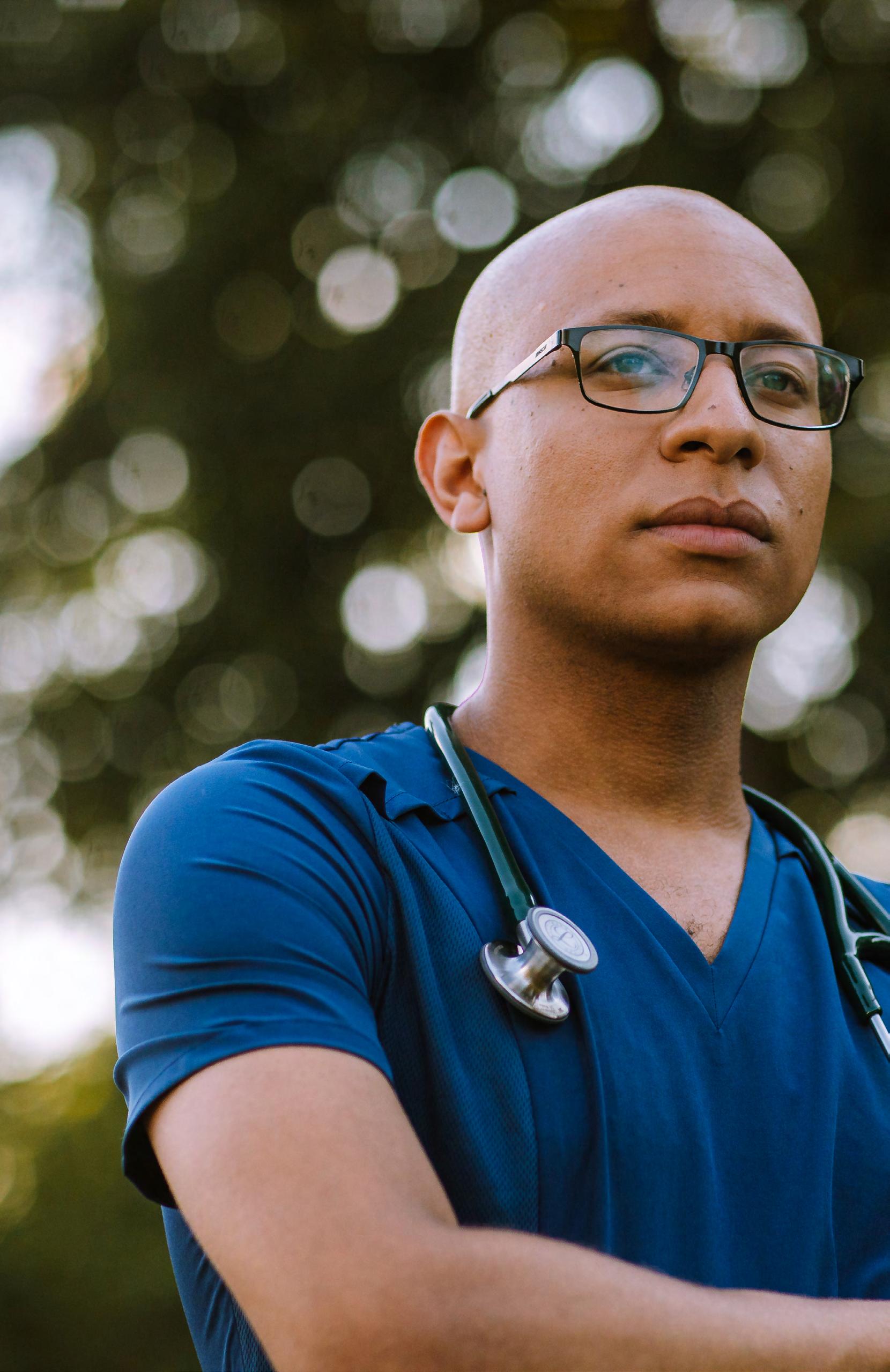
“To me, public health naturally compliments medicine. As such, public health, prevention and equity will be the lens through which I study and apply medicine to my daily practice.”


Donovan Dennis, MPH Student
Donovan Dennis is a dual enrolled medical student at MSU pursuing his MD and MPH simultaneously. Studying public health reinforced his decision to apply for medical school in hopes of becoming a physician. Inspired by the work of advocates and public health professionals in Flint during the water crisis, he sought out MSU’s unique MD and MPH programs. Connecting with community members and fellow students and professors fuels his motivation for becoming a future doctor.
READ MORE
APHA Oral Health Section: Anthony Westwater Jong Memorial Population Oral Health Pre-Professional Award Recipient
“I believe in prevention, compassion, and the common good. I want my work to serve these ideals for the benefit of my community.”

Brenden Smith, MPH ‘24

READ MORE
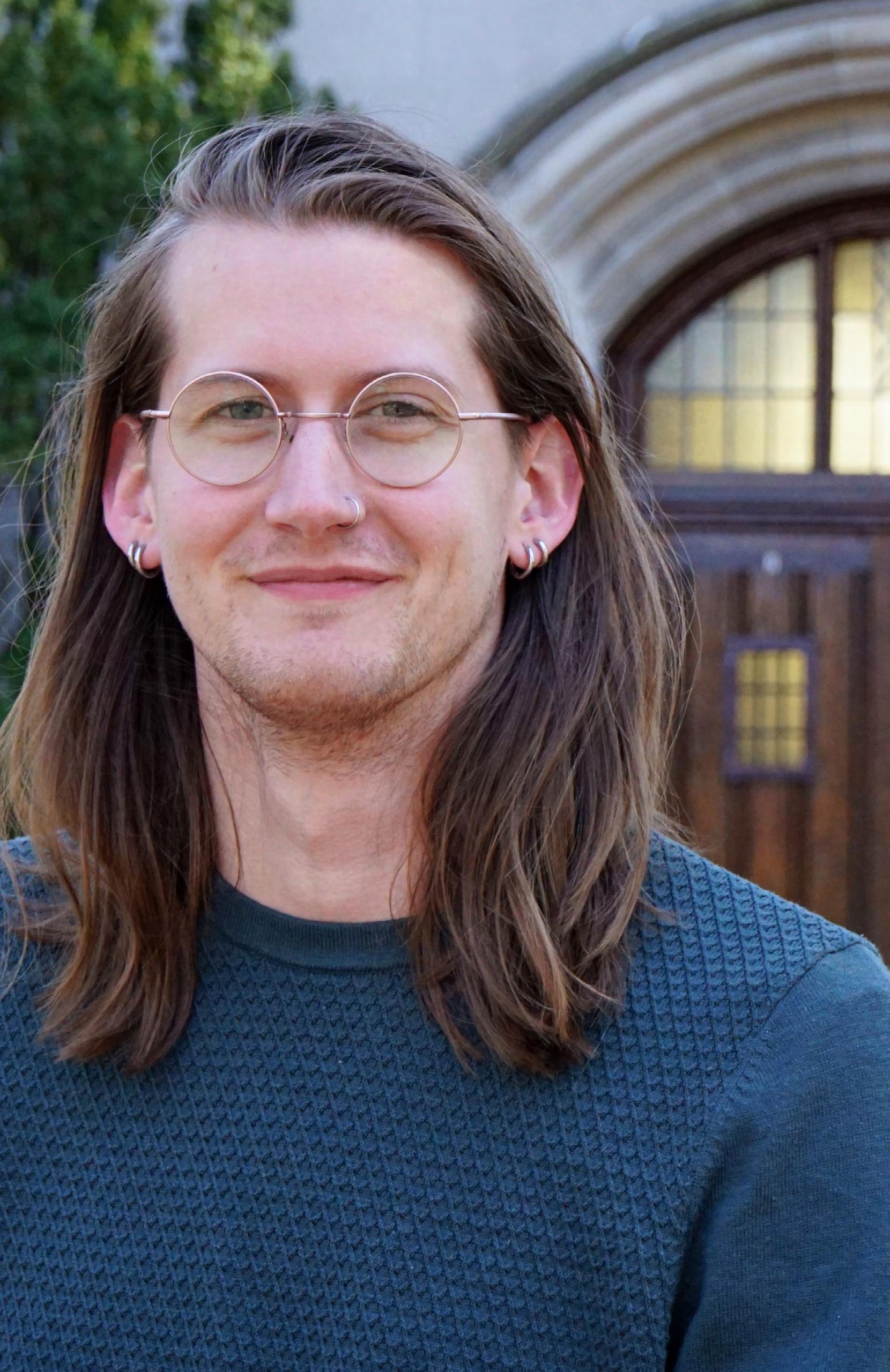

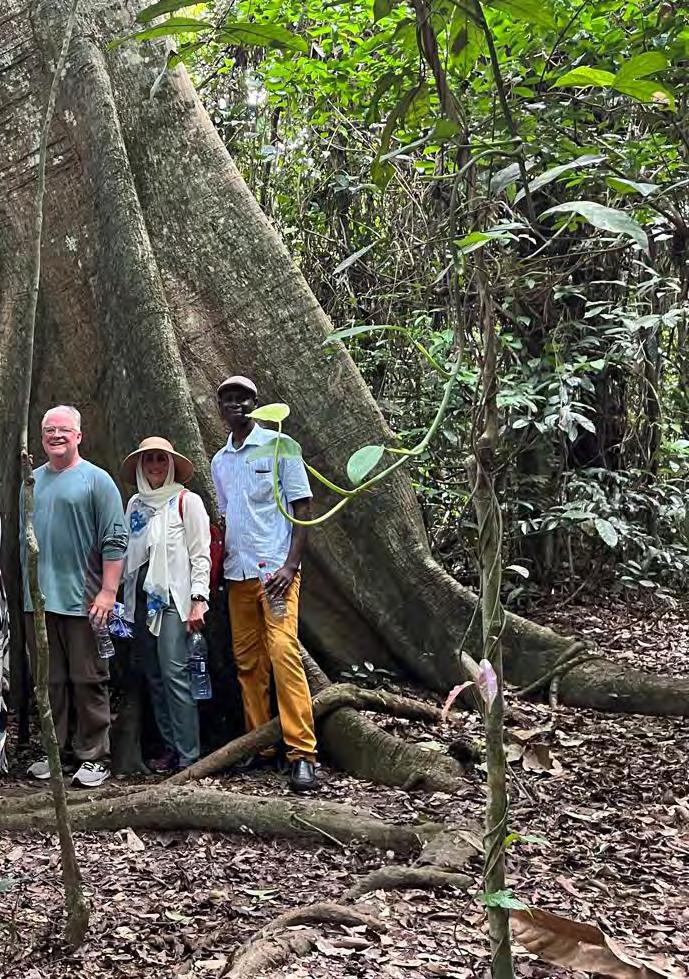
Connie Currier, Associate Professor
My personal journey with cultural competence began decades ago during my Peace Corps service in Ghana from 1982 to 1984 working to establish rural health clinics. Living in a small village, I witnessed firsthand how deeply culture influences health beliefs and practices.
Fast forward to today, where the Public Health in Ghana program offered by the MSU Master of Public Health (MPH) Program continues to bring this lesson to life for students.
Through in-depth focus groups and interviews, students learned about other cultural factors influencing menstrual hygiene practices, such as the belief that menstruating women should not cook and the stigma girls face at school, which often keeps them home during their monthly periods.
READ MORE

Sydnie Wiederman (left)
Sydnie is a public health nurse specializing in family planning and sexual health for the Genesee County Health Department. As a Flint native, continuing to work in the community has been a driving force for her passion for public health.
April LaGrone (center)
April is a Flint native and first generation graduate student. Her interests center around the intervention and utilization of health technology within chronic disease patients of color and hopes to have a career in public health research.
Candace Whitfield (right)
Candace aspires to reconstruct health systems and reduce the likelihood of a person’s zip code being a critical factor in their health outcomes.
READ MORE
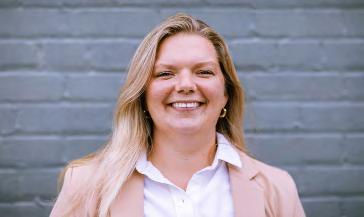
Dr. Tayler is the second Pediatric Public Health Initiative Alice Hamilton Scholar. Her research interests include asthma management, tobacco and vaping, health literacy, gender affirming care, improving access to sexual health care, and substance abuse treatment. She is interested in medical education and the cross section between improved resiliency and wellness particularly during residency and how this affects patient outcomes. Dr. Tayler has experience in advocacy and legislative policy work while living in New York which she hopes to extend in Michigan. Her previous work pertained to removing the religious exemption for vaccines for NY public schools, banning of flavored tobacco product sales to those under the age of 21, and improving transparency of public policy during the COVID19 pandemic. She is a member of the Michigan Chapter of the American Academy of Pediatrics and a board member of the Governmental Affairs and Advocacy committee.
READ MORE


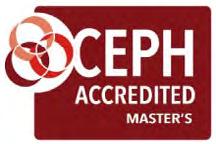
MSU is advancing the public’s health through practice-infused instruction, research, and community partnerships that promote the attainment of health equity for all citizens.







